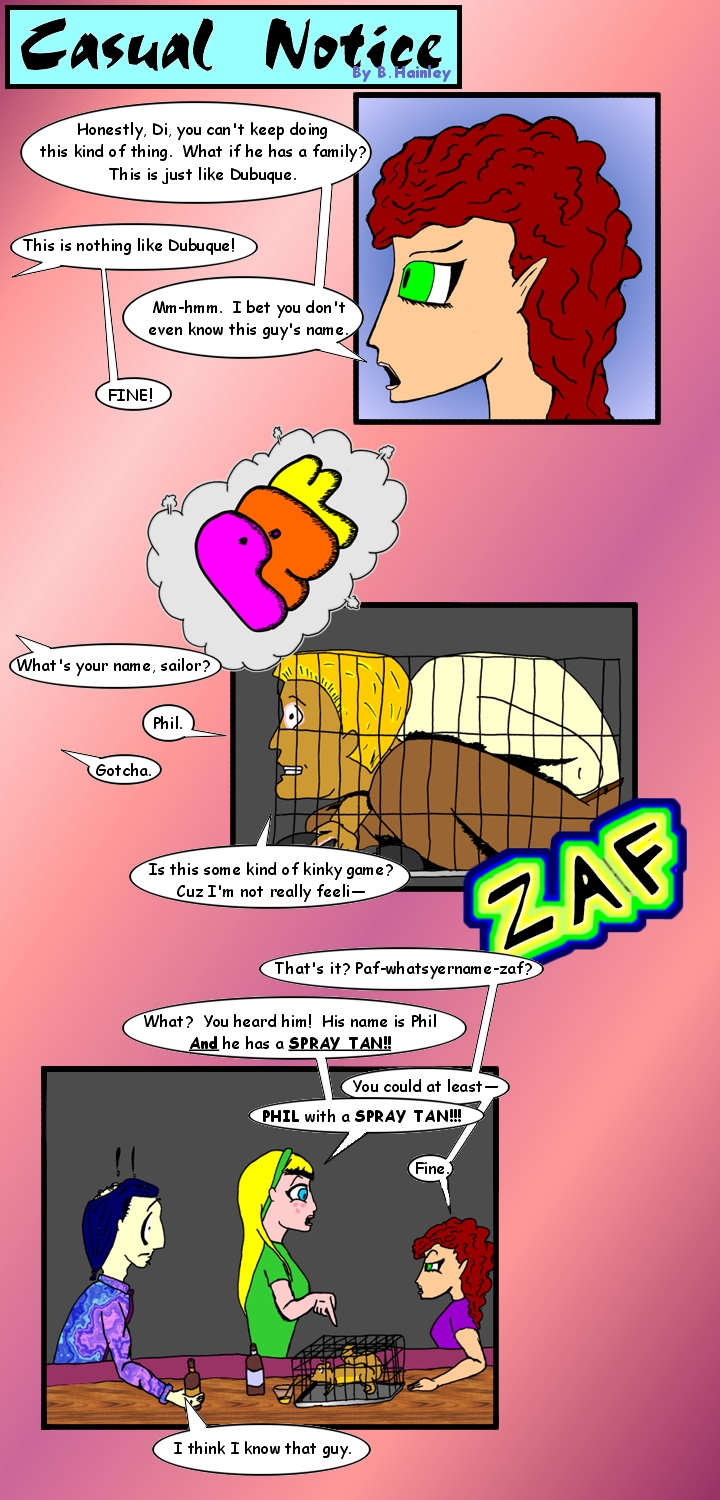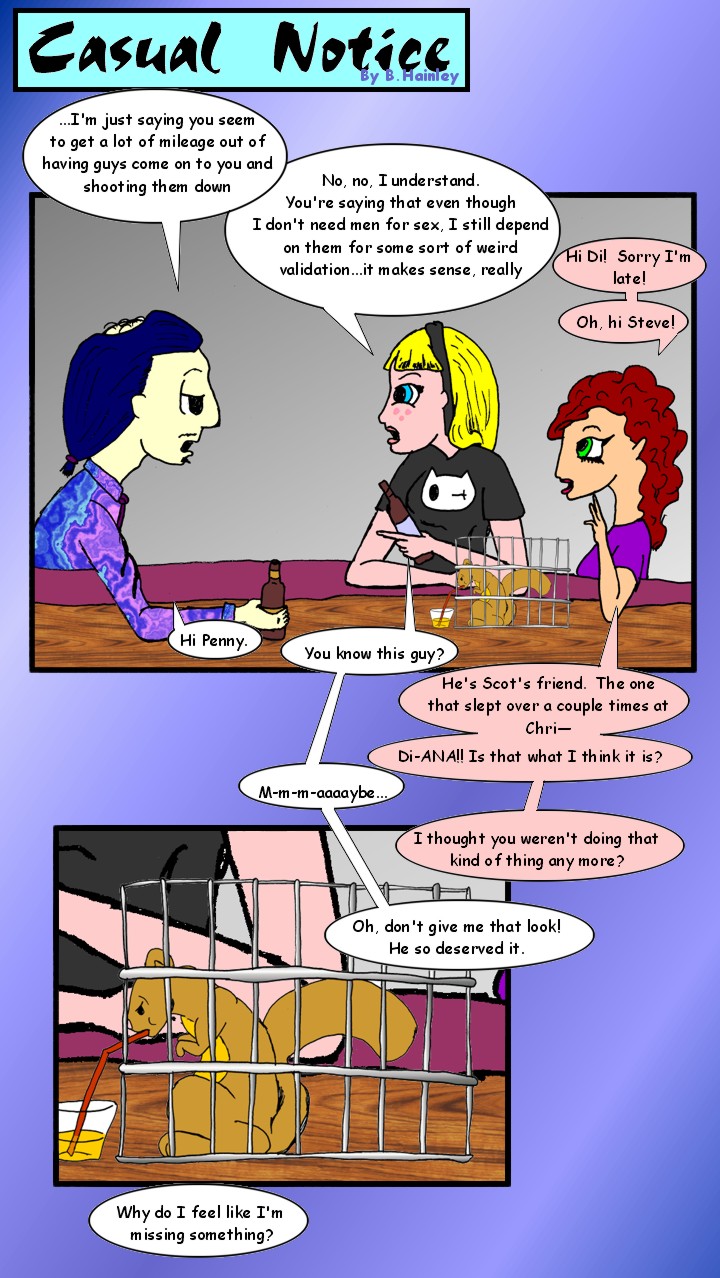Not long ago, I mentioned that I thrive on debate. More recently, this was thrown in my face as evidence that I like starting shit. Whether the accusation is true or not, I find the evidence questionable, but only because I don’t believe that debate is a bad thing.
There are, in my mind, three levels of influential discussion. Debate, argument, and fighting. I prefer debate, and I try to avoid fighting altogether. I don’t care if someone else changes their opinion to match mine, but I don’t like being pressured to accept someone else’s opinion in favor of my own. That is why I prefer debate.
There is no winner in a true debate. That competitive argument is called debate seems ironic to me, since, in it’s purest form, debate is merely an exchange of viewpoints and the facts that support them. If I point out that Adam Smith, the father of Free-market economics was not a laissez-faire capitalist, I am not trying to sway you from your socialist stance. I’m simply supporting my view that some government interference in the economy is acceptable, as long as that interference is limited and performs the government’s primary purpose of protection from abuse.
In debate, it’s okay to agree to disagree. That is, in fact, the most likely outcome. The minute you enter a debate with the intention that you are going to change someone’s mind, it stops being a debate and becomes an argument. Arguments are laden with words of judgment. Socialism is wrong. Capitalism is unfair. Everything about an argument suggests that the other person is committing an error in holding their beliefs and opinions. Facts that don’t support your position are glossed over or ignored in favor of those that do. Conclusions are drawn that are not necessarily the result of the facts used to support them. If you state that corporate culture and power in the US is proof that capitalism doesn’t work, then you are arguing, because you are ignoring the fact that modern corporate culture stands more as an argument for more stringent enforcement of anti-trust laws than it does for further muddying of the waters separating business and the government.
Most discussions end up as arguments, because it’s hard to fathom the idea that someone, given your store of information, might draw different conclusions. In many ways, human society has out-evolved human brains, and we’re still monkeys trying to convince the other members of our troop that “fire good” or “fire bad” depending on which end of the stick we picked up. The problem arises in that many arguments devolve into nothing more than fights. You can tell you’re in a fight if you find yourself resorting to a lot of argumentative fallacies.
Mind you, I tend to have an open attitude toward such tools of argument. For one thing, the classes of argument referred to as fallacies are only fallacies under certain circumstances, and are perfectly reasonable arguments under others. If a man states that he is against abortion, it is a tu quoque fallacy to point out that one of the group funds that his mutual invests in has money in a business that experiments with fetal stem cells. It is not a tu quoque fallacy to point out that a man who loudly decries homosexuality was caught soliciting blowjobs in a bus station.
So maybe avoiding fallacy isn’t the best way to avoid devolving into a fight. Maybe the difference really lies in the lack of respect shown to the other person. If you find yourself getting emotionally involved in the other person’s failure to adopt your viewpoint, you’re probably in a fight. If you find yourself using abusive language, or threats, to impose your view on someone else, you’re almost certainly fighting. If you deride someone’s viewpoint for no other reason than that it differs from you’re own, not only are you fighting, but you’re also a bully. You need to stop that shit.
I love debate. I can trade facts and opinions for hours, and even days, and I get great joy from the things I learn in the process, whether anyone changes their mind or not. I’m okay with argument. I’m not really comfortable trying to make others change their stance, but, as long as everyone is civil, some learning can be achieved. I try not to fight, and I regret every time I was drawn into one. While I’ve often come away from debates thinking, “Wow, I never knew that.” I have never come away from a fight with anything useful, and I usually come away angry or frustrated.
Let’s all try to debate more and fight less.



